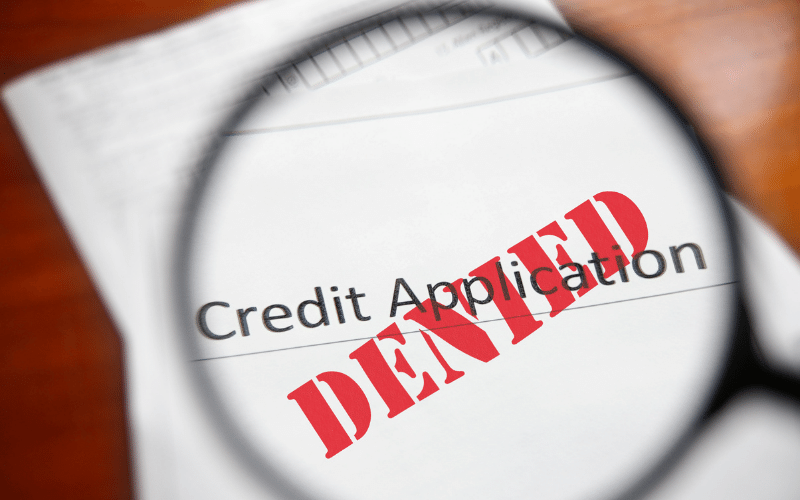Table of Contents

How to Lease a Car with Bad Credit
Finding a car can be difficult if your credit score is not too great. In this article you will learn how to lease a car with bad credit fast and easy.
If you want a newer model car or simply want lower monthly payments than you would with an auto loan, leasing a vehicle may seem like a good option.
However, if you don’t have good credit, a lease may be prohibitively expensive. Some leases may charge you exorbitant financing fees or, worse, leave you on the hook for costly repairs or maintenance.
There are some things to think about if you want to lease a car with bad credit.
What Credit Score Do I Need to Lease a Car?
Leases, like auto loans, are usually subject to credit approval. A car dealership or leasing company will usually consider your credit history and other factors, including your credit scores, when you apply for a lease.
According to the Experian State of the Automotive Finance Market report, the average credit score for those who obtained a lease in the second quarter of 2020 was 729, compared to 718 for new car financing and 657 for used car financing.
One reason for this disparity could be the increased risk that a leasing company assumes when it leases you a car. When you lease a car, you pay for the car’s expected depreciation over the lease term, as well as a rent charge, taxes, and fees.
The leasing company assumes the risk of depreciation — the car’s value may depreciate faster than expected due to factors such as extra miles, excessive wear and tear, or damage. On the other hand, owning a car exposes you to the financial risk of depreciation.
Consider This if You Have Bad Credit and Want to Lease a Car
Here are a few things to consider as you look for a lease:
Financing is expensive – What is essentially your annual percentage rate with a lease is known as the “money factor,” “lease factor,” or “lease rate.”
The money factor, unlike the annual percentage rate on a car loan, is expressed as a decimal fraction. It is used to calculate your rent charge, which is your financing cost.
Low credit scores, while only one of several factors considered during the application process, can result in higher finance charges. This means that if you’re able to get a lease with bad credit, you may have to pay a higher money factor.
“Lease-here, pay-here” car lots – Even if you’ve been turned down by other leasing companies, you might consider leasing a used car from a “lease-here, pay-here” dealership. This can be tempting, especially if you need a car right away — but buyer beware.
Leases on older used cars may be available at these dealerships. They frequently require weekly or biweekly lease payments and high rent charges, and they frequently do not provide coverage for repairs or maintenance.
Consider these dealerships only if you’ve exhausted all other options and need a car right away so you can work on improving your credit. If you decide to lease from a lease-here, pay-here dealership, make sure you understand all of the lease terms and charges.
Ways to Increase Your Chances of Getting a Lease Before Applying
 Here are a few ways you can assess your chances of acceptance before applying:
Here are a few ways you can assess your chances of acceptance before applying:
Put down a deposit – Putting money down when you sign a lease can help. This is known as capitalized-cost reduction or cap-cost reduction.
Before applying for a lease, try to save up enough money to make a larger down payment. This will reduce the amount of your lease and monthly payments and may increase your chances of approval.
However, keep in mind that many leasing companies have limits on the total cap-cost reduction you can achieve.
Reduce your debt-to-income ratio – Your debt-to-income ratio, or DTI, is a straightforward calculation that divides your monthly debt payments by your monthly gross income.
Lower debt-to-income ratios are generally viewed positively by lenders. But keep in mind that your DTI may be just one of many factors considered by a lender when determining whether you’ll be able to make your monthly payments.
Obtain a co-signer – Consider having a family member or friend with better credit co-sign your lease. Having a co-signer can help the leasing company feel more confident that payments will be made on time.
However, keep in mind that your co-signer is liable if you fail to pay, so make sure whoever you ask is fully aware of their responsibilities.
Alternatives to Leasing a Car if You Have Poor Credit
 If you’ve been turned down for a lease or aren’t sure if a lease is the best option for you, here are some alternatives.
If you’ve been turned down for a lease or aren’t sure if a lease is the best option for you, here are some alternatives.
Take over another person’s lease – If you are approved to take over someone else’s lease, this is referred to as a “lease swap” or “lease transfer,” and you are responsible for the remaining payments as well as fulfilling the original lease terms.
Lease-transfer websites such as SwapALease.com and LeaseTrader.com can assist you in identifying lease-transfer opportunities.
Take note, however, that you will most likely need to have comparable credit to the original lease owner to qualify.
Purchase a less expensive used car – Buying a lower-priced used car typically means you have less to finance, which may result in lower interest payments. And, while it depends on a number of factors, qualifying for a used-car auto loan with bad credit may be easier than leasing a car.
Look for a dealership that has a special financing department – If you want to buy a newer car, look for a dealership that has a special department that considers people with less-than-perfect credit.
Keep in mind that even if you are approved, the interest rates on these loans will most likely be higher if you have a lower credit score.
In conclusion
It can be difficult to obtain a lease if you have poor credit. Even if you are approved, leasing can be costly, with significant cash due upfront and high financing charges. If you have the time, consider focusing on credit repair before looking for a lease.